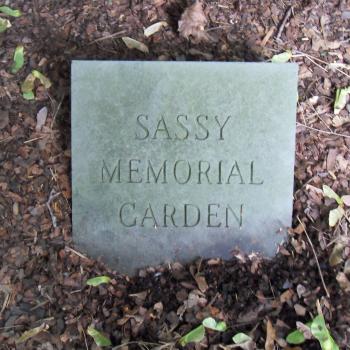 I’ve been cleaning out an attic—not my own—along with drawers, closets, shelves, storehouses, and barns —also, not my own, or at least not primarily. I don’t live here anymore, though I’ve always called this place home.
I’ve been cleaning out an attic—not my own—along with drawers, closets, shelves, storehouses, and barns —also, not my own, or at least not primarily. I don’t live here anymore, though I’ve always called this place home.
I’m doing these things in preparation for the sale of a farm that has been lived in continuously, and happily, for forty years. During that time, the house accumulated the contents of others’ houses, boxed up and moved in when the people who owned them grew sick and old and eventually died. Life was too busy to sort through all of it, so generation piled upon generation, like the Iron Age after the Bronze.
In the heat of a Southern summer, in the eaves of the old house, dimly lit and with little ventilation, old cardboard boxes must be gone through. They crumble and split at the touch, disintegrating like frail pastilles. The close air is heavy with the scent of insulation, musty paper, aged cloth, bitter red coins, and for some reason, the contents of ladies’ purses that I remember from my youth—the patent leather kind with hard metal clasps: Kleenex, face powder, rouge, lipstick, and mints.
This is a delicate business. Decisions have to be made. After all, someone saved these things; even the slightest sense of duty to the past can tug hard at the conscience. Who am I to discard what has been kept for seventy years or more? I’m the kind to keep, in fact, and when there’s no clock running on your right to a place, you can keep on keeping.
But now there is indeed a clock, and a realtor owns it; hard as it is to fathom, others will come to consider this farm with an eye to purchase, and they will want to see its “potential.” They will want to see how much empty space there is, how vast the nothingness can be, cleared of history’s clutter. They will want the live oaks out of the way so they can get a view of how much grass might accumulate; square footage, you know; it’s all about square footage.
So as to the things kept; something’s got to go. Somebody has to draw the line. And it seems that somebody has come down to me.
With a box full of black garbage bags, I begin the task. There are some easy choices. Nothing that relates to a living person is thrown away. Those are tied to pasts larger than my own, to branches of memory I cannot value. What appears to me a record of no great moment, a trophy or laurel wreath of no lustrous renown, might have untold significance to those absent. Such things go into newer boxes, and await other afternoons in other attics to come.
The trouble I have is with things that were kept by those now dead; some of them long dead. What if I’m throwing away the last token of some monumental fervor or love? But untethered from a living heart and tongue, there’s no way of knowing, which tells a great deal about the inscrutability of the material world. An object can be fraught with consequence or have none at all, and it all turns upon the fulcrum of a lived experience. There is a note of triage about such tasks as mine—what to save; what to let slip away.
Such metaphoric battlefields as this pull mightily upon the scruples. It can seem callous, slightful, to cast away clippings, medals, report cards. Something as insignificant as a shopping list—unintentionally saved—or a short note or check register in the hand of a grandmother gone some thirty-five years now—can give much pause.
Handwriting is a hard thing I’ve learned. Like the recorded voice or the photographed image, it is as close as we can come to the reality of a human that once was, of a pulse that once beat quickly. I was one of the things that gave these people purpose—their intentions and plans were made around me and for me. For the leaf to say to the root, “I have no need of what you needed,” seems insolent; ungrateful.
But it’s only a shopping list; only a check register. I get too philosophical. There’s no time for sentiment. Shake it off; go on.
Christmas and birthday cards can be harder still, connected as they are to emotions that survive loss. But there are hundreds of them, and any inscriptions inside make the decisions more difficult. When it comes to handwritten letters, which are both an archive for reminiscence and artifact for beautiful civilities now passed—the choices grow treacherous.
Nevertheless, some things I cannot do. For example, anything related to the boy I was named after, who died when he was twenty-two, I have to keep. I’ve already lost too many of his things along the way, fool that I am, so I overcompensate. I’ll deal with that another time; only so much practicality can be mustered.
Other things, I make myself do.
For if you swallow big and take a deep breath, a sweep of an arm can shuffle away moth-chewn tuxedoes and ball gowns, kept for decades. Off go schoolbooks, board games. One hard snatch can pull down portieres that have dry-rotted, and a good swift kick can break apart the rest, if it’s wooden, and held together only by your own reluctance to do the deed.
To everything there is a season, I say tritely as I work. All will be well yet, and the pile grows high.
But still, beneath my breath, I find myself asking as I did as a child, with regard to puppies that had died, or on behalf of colts and calves that had slipped away—that God, despite himself, and in his great and infinite mercy, might somehow let there be a kind of rough heaven, even for these ordinary things of everyday use.
A.G. Harmon teaches Shakespeare, Law and Literature, Jurisprudence, and Writing at The Catholic University of America in Washington, D.C. His novel, A House All Stilled, won the 2001 Peter Taylor Prize for the Novel.











